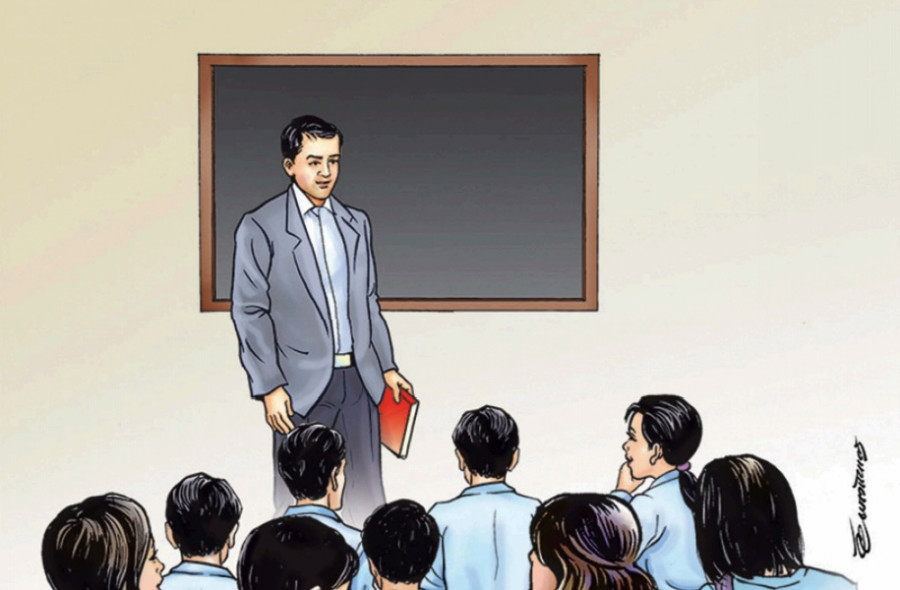Editorial
‘Karyakarta’ teachers
By participating in political conventions, teachers are flouting court orders.
The ongoing general conventions of Nepal's political parties have mobilised people from the far reaches of the country. The hustle and bustle of people have indeed provided a much-needed boost to the flagging local service industry, primarily hotels, lodges, and banquet halls that are at the centre of providing catering and lodging to multitudes of people. For once, the problems that have beset the people would have gone unnoticed had these conventions not gained notoriety for causing horrendous traffics jams, in some cases even obstructing ambulances from ferrying patients. The other concerning bit of information doing the rounds is the active participation of government school teachers at these conventions.
Despite the Patan High Court's issuing orders to take action against any teacher seen participating in political conventions, there are reports of tutors not just participating but actively contesting for various positions. It is no secret that politics has permeated every facet of Nepali society. Having an affiliation with a political party often provides people who find themselves in a tight spot with much-needed clout that could have multifaceted benefits which otherwise could prove costly. In return, the politicians get an uninterrupted supply of passionate support, which can be easily mobilised at their beck and call for any purpose they desire.
Instead of focusing on improving the condition of public educational institutions, the politicians seem to have a covert interest in maintaining the status quo. Former prime minister Pushpa Kamal Dahal even objected to the Election Commission’s call to keep teachers from party politics citing reasons that such actions would weaken party politics. So much for covert intentions! These callous remarks shown by one are harboured by many, and it quite candidly exposes their agenda at the heart of it.
In one such report commissioned by the erstwhile prime minister KP Sharma Oli, the report concluded that the politicisation of educational institutions was one of the major factors responsible for diminishing the quality of education at schools and universities. And interestingly, the commission even recommended barring teachers from active participation in politics. Still, for reasons known only to the authorities, the report which was submitted to Oli on January 15, 2019, was never made public. After all, could a report that reflected the truth be released to the detriment of party politics?
Studying politics should be an essential requirement, but the involvement of politics in educational institutions is bound to have a detrimental effect on young minds that have so much potential to shape their futures and that of the country. In a country where politics relies on sycophancy, education should be seen to empower the masses and enable the people to uplift themselves out of poverty. In doing so, the teachers are at the heart of it. Allowing active political involvement amongst teachers lets them have free rein to instil the values of sycophancy and servitude, which should be acceptable at no cost.




 13.12°C Kathmandu
13.12°C Kathmandu














